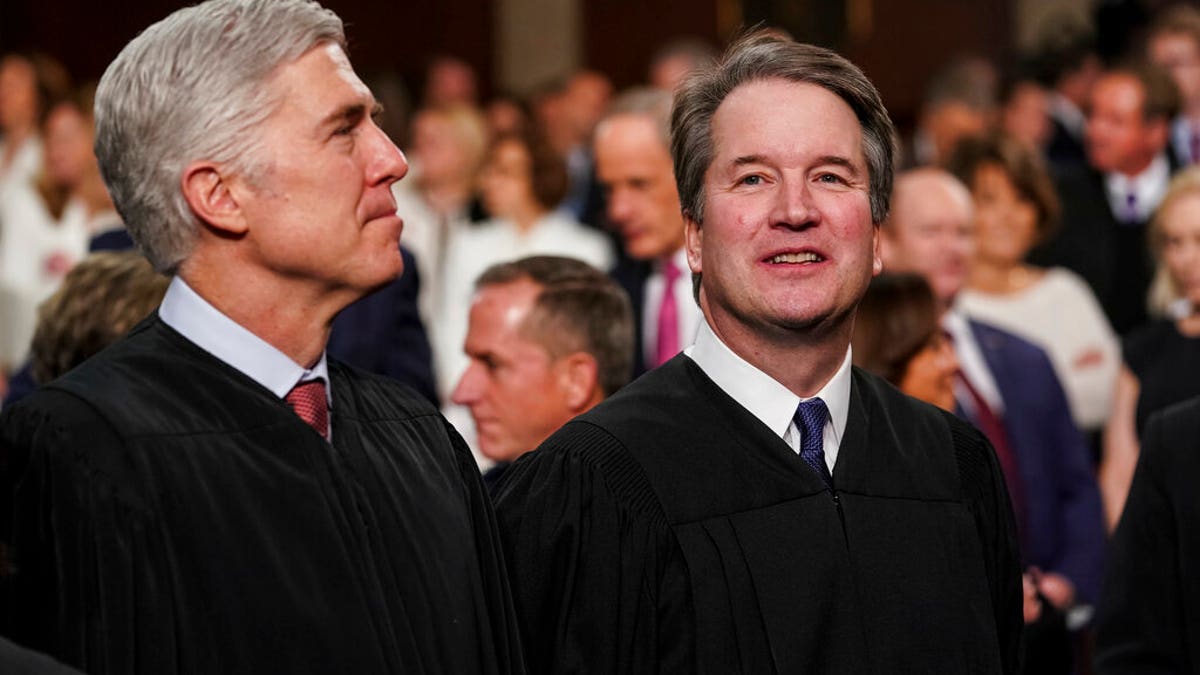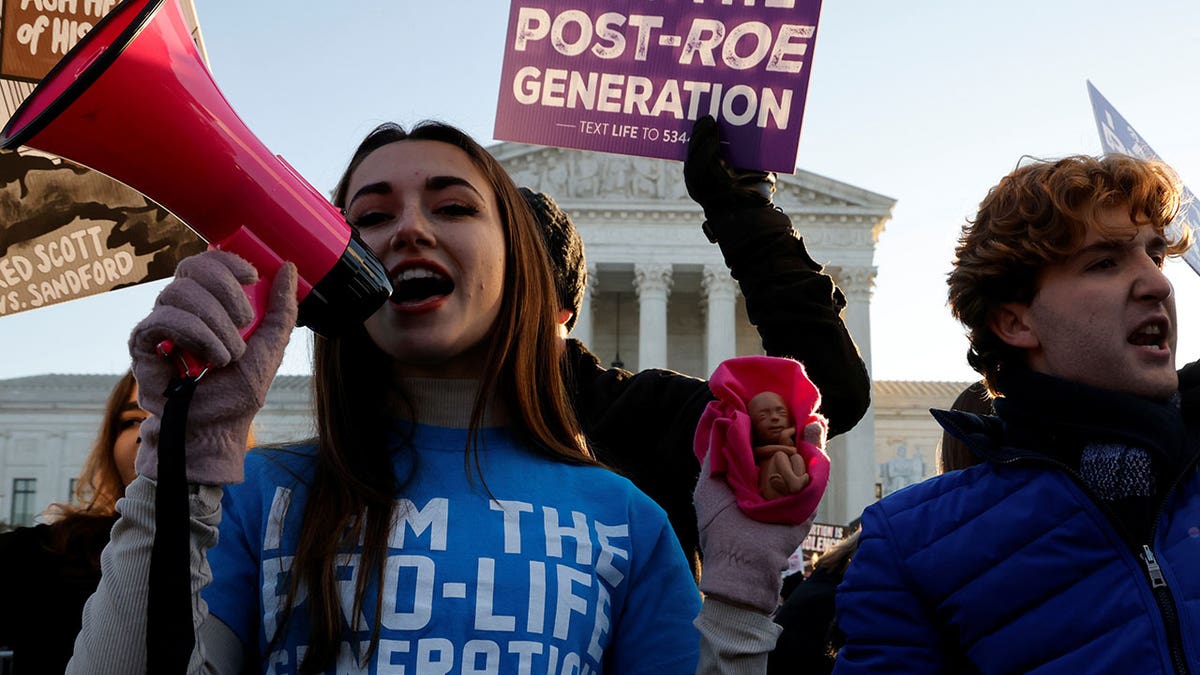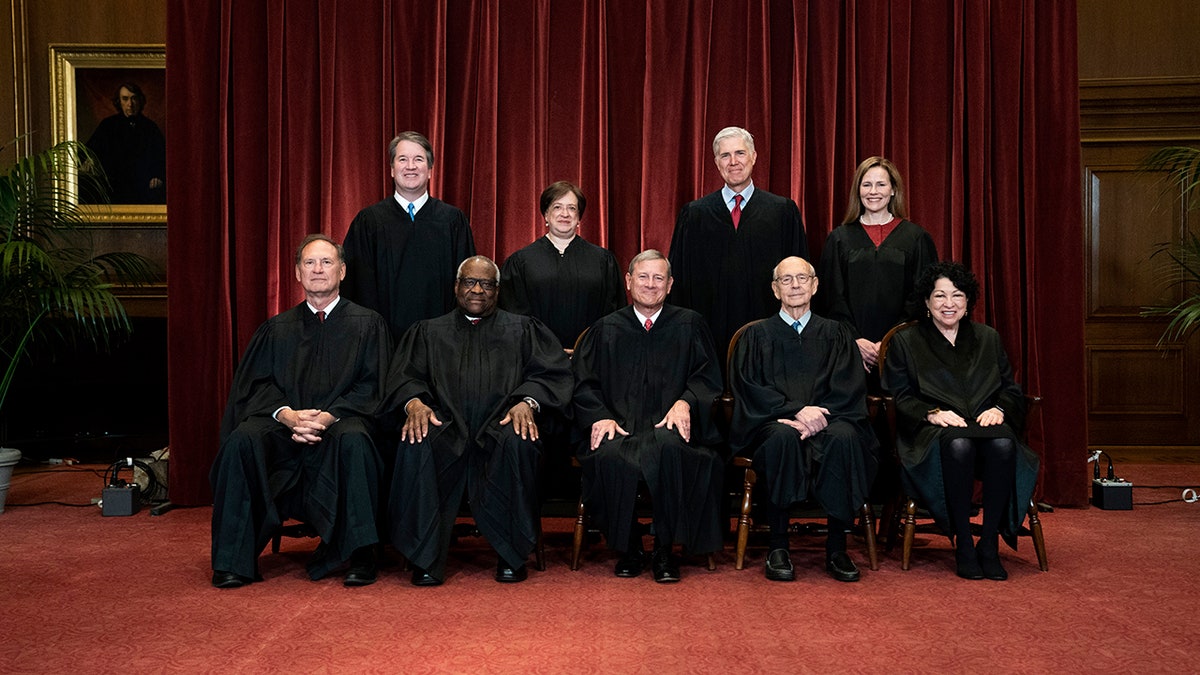Fox News Flash top headlines for December 7
Fox News Flash top headlines are here. Check out what's clicking on Foxnews.com.
The Presidential Commission on the Supreme Court voted unanimously Tuesday in favor of approving its final report and sending it to President Biden's desk.
The vote concluded the work of the 34-member commission, which held six public meetings and called on 44 witnesses. Biden, who has expressed opposition to expanding the court, formed the commission in April to study court expansion and reform amid calls from some within the Democratic Party to add more justices.
The final draft of the 288-page report, which drew vocal opposition regarding some of its conclusions, was released Monday and stopped short of offering specific recommendations. Instead, it offered a summary of arguments for and against issues ranging from court-packing and judicial term limits to various elements of court practice.
During Tuesday's virtual hearing, several members noted the sharp differences of opinion among those on the commission regarding such issues, which the report summary said mirrors "the broader public debate."
BIDEN SUPREME COURT COMMISSION OPPOSES ADDING JUSTICES
"Given the size and nature of the Commission and the complexity of the issues addressed, individual members of the Commission would have written the Report with different emphases and approaches," the report's summary read. "But the Commission submits this Report today in the belief that it represents a fair and constructive treatment of the complex and often highly controversial issues it was charged with examining."

In this Feb. 5, 2019 file photo, Supreme Court Associate Justices Neil Gorsuch, left, and Brett Kavanaugh watch as President Donald Trump arrives to give his State of the Union address to a joint session on Congress at the Capitol in Washington, D.C. (Doug Mills/The New York Times via AP, Pool)
Regarding court-packing, the report said: "No serious person, in either major political party, suggests court packing as a means of overturning disliked Supreme Court decisions, whether the decision in question is Roe v. Wade or Citizens United. Scholars could say, until very recently, that even as compared to other court reform efforts, ‘court-packing’ is especially out of bounds. This is part of the convention of judicial independence."

An anti-abortion demonstrator protests in front of the Supreme Court building, on the day of hearing arguments in the Mississippi abortion rights case Dobbs v. Jackson Women's Health, in Washington, U.S., December 1, 2021. (REUTERS/Jonathan Ernst)
"The commission takes no position on the validity or strength of these claims," the report’s summary added. "Mirroring the broader public debate, there is profound disagreement among commissioners on these issues. We present the arguments in order to fulfill our charge to provide a complete account of the contemporary court reform debate."

Members of the Supreme Court pose for a group photo at the Supreme Court in Washington, D.C. (Erin Schaff/The New York Times via AP, Pool, File)
Kelly Shackelford, who serves as president, CEO and chief counsel for First Liberty Institute, said in a statement: "The American public reject court-packing and any other attempt to destabilize the judiciary. Even after numerous polls show Americans reject court-packing, far-Left progressives are clearly trying to expand their political power under the guise of ‘court-reform.’
CLICK HERE TO GET THE FOX NEWS APP
"Expanding the membership of the United States Supreme Court is nothing more than a transparent, partisan scheme to achieve purely political objectives and exercise raw power that must be rejected," Shackelford added.





















